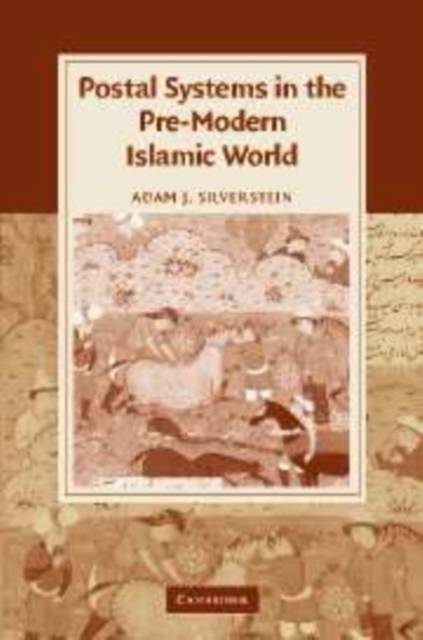
Door een staking bij bpost kan je online bestelling op dit moment iets langer onderweg zijn dan voorzien. Dringend iets nodig? Onze winkels ontvangen jou met open armen!
- Afhalen na 1 uur in een winkel met voorraad
- Gratis thuislevering in België vanaf € 30
- Ruim aanbod met 7 miljoen producten
Door een staking bij bpost kan je online bestelling op dit moment iets langer onderweg zijn dan voorzien. Dringend iets nodig? Onze winkels ontvangen jou met open armen!
- Afhalen na 1 uur in een winkel met voorraad
- Gratis thuislevering in België vanaf € 30
- Ruim aanbod met 7 miljoen producten
Zoeken
Omschrijving
Adam Silverstein's book offers a fascinating account of the official methods of communication employed in the Near East from pre-Islamic times through the Mamluk period. Postal systems were set up by rulers in order to maintain control over vast tracts of land. These systems, invented centuries before steam-engines or cars, enabled the swift circulation of different commodities - from letters, people and horses to exotic fruits and ice. As the correspondence transported often included confidential reports from a ruler's provinces, such postal systems doubled as espionage-networks through which news reached the central authorities quickly enough to allow a timely reaction to events. The book sheds light not only on the role of communications technology in Islamic history, but also on how nomadic culture contributed to empire-building in the Near East. This is a long-awaited contribution to the history of pre-modern communications systems in the Near Eastern world.
Specificaties
Betrokkenen
- Auteur(s):
- Uitgeverij:
Inhoud
- Aantal bladzijden:
- 230
- Taal:
- Engels
- Reeks:
Eigenschappen
- Productcode (EAN):
- 9780521147613
- Verschijningsdatum:
- 24/06/2010
- Uitvoering:
- Paperback
- Formaat:
- Trade paperback (VS)
- Afmetingen:
- 152 mm x 229 mm
- Gewicht:
- 340 g

Alleen bij Standaard Boekhandel
+ 121 punten op je klantenkaart van Standaard Boekhandel
Beoordelingen
We publiceren alleen reviews die voldoen aan de voorwaarden voor reviews. Bekijk onze voorwaarden voor reviews.











